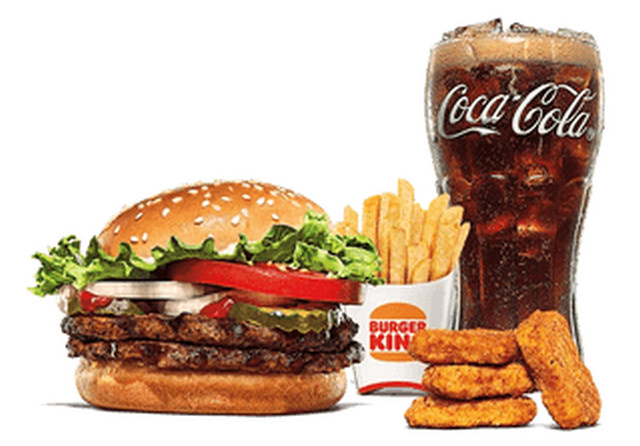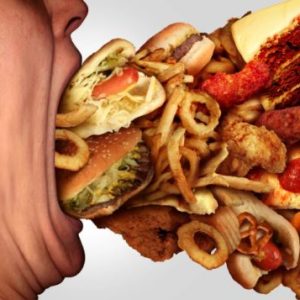A new global survey of existing national programs reveals that taxing junk food does reduce sales and consumption of foods high in salt, sugar and fat. And that’s reignited the longstanding debate over the effectiveness of economic measures…
 Burger King’s classic ‘Your Way’ Whopper Meal… A Fast Food icon.
Burger King’s classic ‘Your Way’ Whopper Meal… A Fast Food icon.
A philosophical rift
Economists have staunchly claimed that adding surtaxes to the price of junk of foods will discourage consumers from buying them. The idea is to encourage folks to seek other kinds of snacks. Snacks that are cheaper, and hopefully healthier.
But tax opponents are just as adamant. They claim the proven principle that we are hard-wired to crave salt, sugar and fat will overwhelm the pressure any additional tax.
So far, the jury has remained out on the issue. But now, a new analysis of evidence from around the world from Imperial College Business School. reveals that taxation does work.
What they did
An abstract of the story report explains: “We identified a total of 20 studies evaluating HFSS food taxes, published between 2015 and 2021, of which 13 were observational studies of implemented taxes and 7 were experimental studies of hypothetical taxes.”
The survey looked at the results of taxes, and proposed taxes, as stated by the study teams.
Existing and proposed tax rates from 1 percent to 25 percent were examined in the contributing studies.
What they found
The new survey revealed several key findings:
- Higher tax rates were more effective than lower rates in reducing sales and intake.
- Tax effects differed by income level — low-income groups were more responsive.
- Subsidies helped offset regressive tax impacts in low-income groups.
- Unhealthy food taxation may be an effective tool to reduce unhealthy food intake.
It’s not surprising the survey found that higher surtax rates were more effective in reducing junk food sales. Mexico’s 18 percent tax was judged to be most effective – and highest – of the implemented junk food surtax rates.
External pressures
But there are also important questions not addressed by science… Notably, the unwillingness of politicians to impose unpopular taxes on the voting public. And blowback from the powerful food processing industry.
My take
The question has now become, not whether to tax junk food, but how much to tax? What is the minimum tax rate that will achieve the desired reduction of consumption and cause the minimum backlash from consumers and industry?
That’s a precarious balance – if, in fact, it can be achieved.
One thing appears certain. We must discourage junk food consumption – fighting obesity and, by association, reducing the immense burden it dumps on health care systems. The only method proven effective thus far is taxation. No matter how unpopular it may be, and how timid politicians may be to take the plunge.
~ Maggie J.

